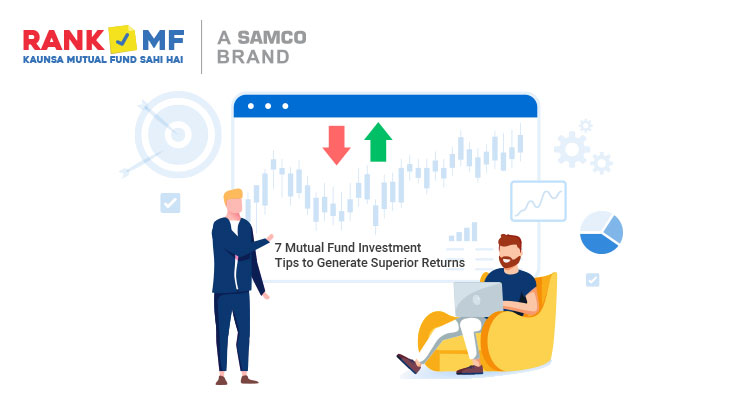In this article we cover
-
1) How Liquid Funds are Taxed?
-
2) What is Indexation?
-
3) Liquid Fund Taxation – Dividend Vs Growth Option
Understanding liquid fund taxation is very critical before you start investing your hard-earned money in liquid funds.
The biggest reason behind the popularity of liquid funds is its taxation. Liquid funds are a type of debt funds. Hence liquid fund taxation is similar to debt fund taxation. Liquid funds also enjoy the benefits of indexation.

Liquid Mutual Funds Taxation
Tax on liquid funds is applicable based on two factors –
- Growth or dividend option
- Short term and long-term capital gains.
Today we will understand how tax on liquid funds is calculated under various scenarios.
Tax on Liquid Funds – Short Term Capital Gains
The holding period of liquid mutual funds is 36 months, or 3 years. So, if you sell before completing 3 years, then all your gains/profits are classified as ‘Short Term Capital Gains’.
Tax on Liquid Funds – Long Term Capital Gains
If you sell your liquid fund units after completing 36 months or 3 years, then your gains are classified as ‘Long Term Capital Gains’.
Tax on Liquid Funds – Latest Tax Rates

- Short term capital gains are added to your income tax slab and taxed accordingly. So, if you fall in 10% tax slab then you pay 10% short term capital gains tax. If you fall in 20% tax slab, then 20% short term capital gains tax is applicable.
- Long term capital gains are taxed at the rate of 20% with indexation.
What is Indexation?
Indexation is a facility provided by the Income tax authorities to investors to reduce their tax liability. Indexation helps investors adjust their purchase price for inflation. Through indexation, your purchase price increases. This reduces your overall gains. With lower gains, the tax payable also reduces.
The facility of indexation is only available for debt funds. It is not applicable for equity funds. Since liquid funds are a type of debt funds, indexation is applicable for liquid funds as well.
Also, indexation is only applicable on long term capital gains. If you sell your liquid fund before 36 months, then indexation will not be applicable.
The Cost Inflation Index (CII) is published by the Income Tax Department for every financial year.
The formula for indexation = Purchase Amount * (CII of year of sale)/ (CII of year of purchase).
Let us take an example to understand short term capital gains taxation in liquid funds.
Calculating Short Term Capital Gains Tax in Liquid Fund
Suppose you invested Rs 5 lakhs in Aditya Birla Sun Life Liquid Fund – a top liquid fund in India. Your date of purchase was 1st April 2017. On 1st April 2019, you decide to sell all your units. Since you are selling before 36 months, you end up paying short term capital gains tax.
- If you fall in 10% tax bracket then tax payable would be Rs 10,000
- If you fall in 20% tax bracket then tax payable would be Rs 20,000
- If you fall in 30% tax bracket then tax payable would be Rs 30,000
| Date Of Purchase | 1st April 2017 | ||
| Purchase Value | 5,00,000 | ||
| Date of Sale | 1st April 2019 | ||
| Sale Value | 6,00,000 | ||
| No of Months of Investment | 12 Months | ||
| Tax Applicable | Short Term Capital Gains Tax | ||
| Short term capital gains | 1,00,000 | 1,00,000 | 1,00,000 |
| Income tax slab | 10% | 20% | 30% |
| 10% | 20% | 30% | |
| Short term capital gains tax rate | 10,000 | 20,000 | 30,000 |
As you can see, the short term tax payable increases as the income tax slab increases. Hence, investors in the lower tax slab benefit from short term capital gains tax.
But the scenario totally changes in case of long term capital gains tax on liquid funds.
Calculating Long Term Capital Gains Tax in Liquid Fund
| Date of Purchase | 1st April 2017 |
| Purchase Value | 5,00,000 |
| Date of Sale | 1st April 2020 |
| Sale Value | 6,00,000 |
| Actual Profit | 1,00,000 |
| No of Months of Investment | 36 Months |
| Tax Applicable | Long Term Capital Gains Tax |
| Long term capital gains | 1,00,000 |
| CII 2017-18 | 272 |
| CII 2020-21 | 301 |
| Indexed Purchase Price | 5,53,309 |
| Indexed Profit | 46,691 |
| Long term capital gains tax payable | 9,338 |
Take the same example as above. But now your sale date is after 3 years.
With indexation:
- Your purchase price is increased from Rs 5 Lakh to Rs 5.53 Lakhs.
- Your profit is reduced from Rs 1 Lakh to Rs 46,691.
- Your tax payable is only Rs 9,338. This is much less than paying Rs 20,000 tax (20% on your original gain of Rs 1 Lakh).
Hence, ideally investors should wait for 3 years before redeeming from liquid funds.
Liquid Fund Taxation – Dividend Vs Growth Option
When you invest in liquid funds, you have two investment options – Growth and Dividend.
The above liquid fund taxation relates to the growth option. But what happens if you choose dividend option?
Dividend income before 31st March 2020 was tax-free in the hands of investors. But the Finance Act 2020 has made dividends taxable in the hands of investors.
From 1st April 2020, investors will have to pay tax on dividends received. Investors will have to mention the dividend income as ‘income from other sources’ while filling taxes.
Dividends from liquid funds are added to your income and taxed as per your tax slab. So, investors in highest tax bracket will end up paying more tax on dividends.
Additionally, Tax Deducted at Source (TDS)is also applicable on mutual fund dividends. Fund houses will deduct 10% TDS on dividend paid if the dividend amount exceeds Rs 5,000.
But your tax liability will be zero if your income does not exceed Rs 2.5 lakhs.
To conclude, while investing in liquid funds, growth option and holding for a minimum of 3 years is highly profitable.
Once you have understood how liquid funds are taxed, the next step is to invest in the best liquid funds in India. RankMF experts have curated a special list of best liquid funds in India. These funds are top performers and have consistently beaten the benchmark. Open a FREE RankMF account and start investing in the best liquid funds in India.






